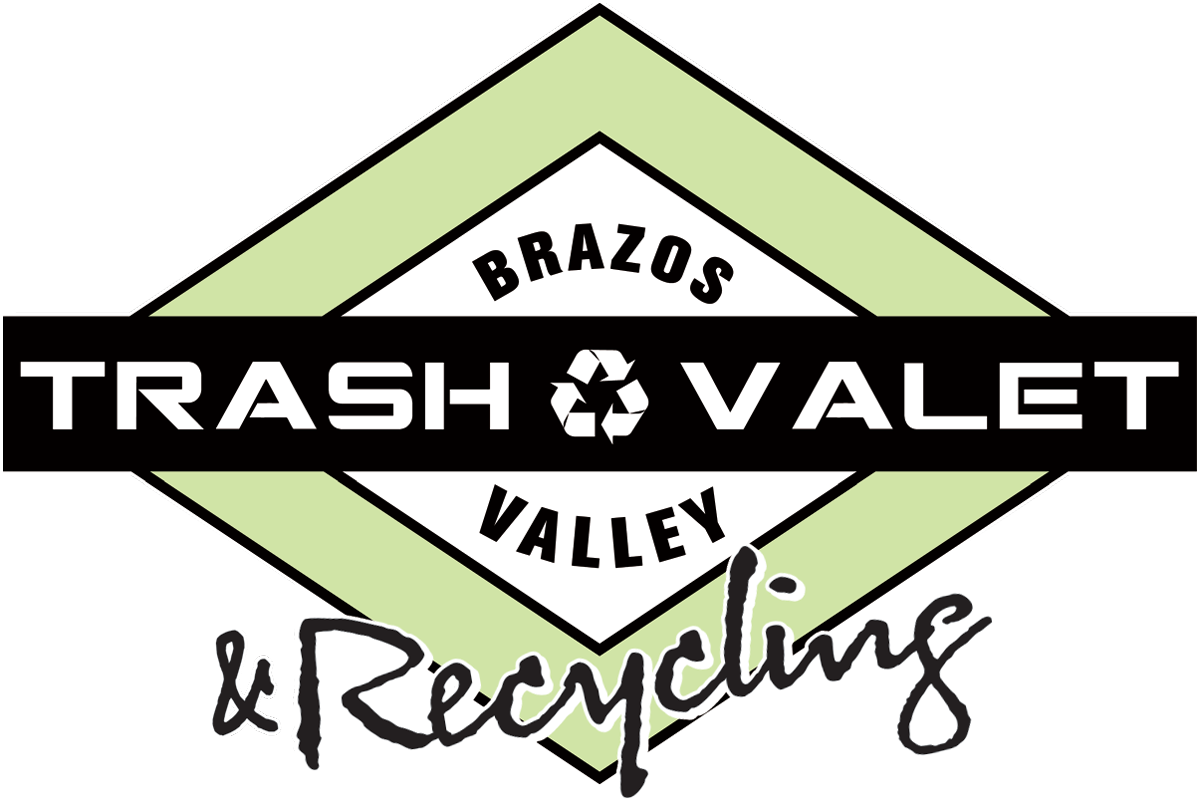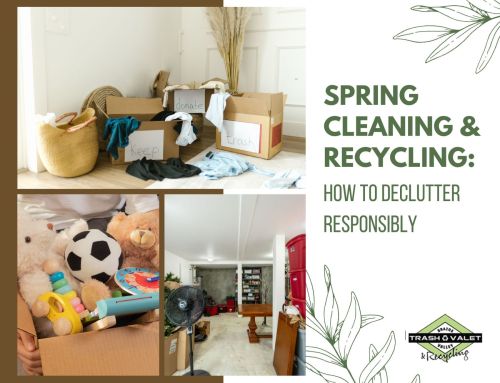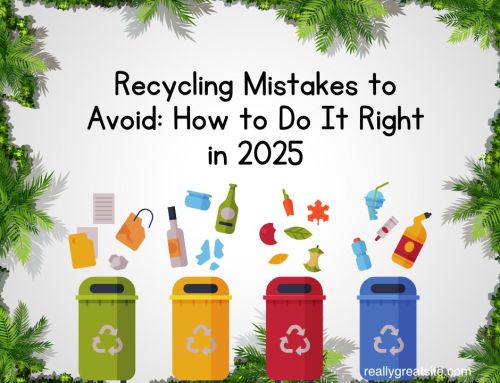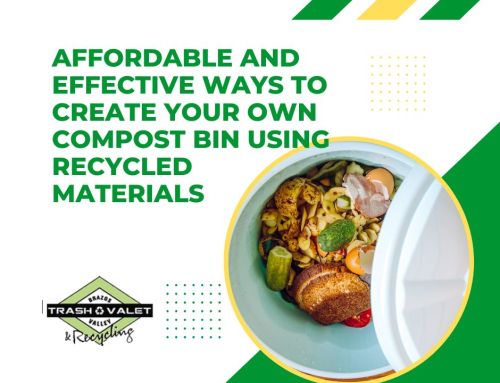Why Composting and Recycling Are the Perfect Waste Management Duo
When it comes to managing household waste responsibly, composting and recycling are two of the most powerful tools available. Both practices work together to divert waste from landfills, conserve natural resources, and reduce environmental harm. By combining these efforts, individuals can significantly minimize their waste footprint and make a meaningful contribution to a healthier planet. Let’s explore why composting and recycling complement each other and how you can use both to achieve an efficient, eco-friendly waste management system.
What Is Composting and Why Does It Matter?
Composting is the process of breaking down organic waste, such as food scraps and yard debris, into nutrient-rich soil. This natural decomposition process not only reduces the amount of organic waste sent to landfills but also creates a valuable resource for gardening and agriculture. When organic materials end up in landfills, they decompose anaerobically (without oxygen), releasing methane, a potent greenhouse gas. Composting, on the other hand, allows organic materials to break down aerobically (with oxygen), minimizing methane production and contributing to soil health.
What About Recycling?
Recycling involves collecting and reprocessing materials like paper, plastic, metal, and glass into new products. By recycling, we conserve natural resources, save energy, and reduce pollution caused by producing new materials. For example, recycling aluminum cans saves up to 95% of the energy needed to produce new ones from raw materials.
How Do They Work Together?
Composting and recycling target different types of waste, but together they create a comprehensive waste management system that can drastically reduce what goes to landfills. Dividing waste efficiently ensures that composting handles organic waste (food scraps, leaves, coffee grounds), while recycling deals with inorganic materials (plastic, paper, metal). This division ensures that every type of waste has a purpose and a proper destination. Combining both practices can keep up to 80% of household waste out of landfills, reducing methane emissions and extending the lifespan of existing landfill sites. Composting returns nutrients to the earth, while recycling keeps materials in circulation, reducing the demand for new resources. Together, they promote sustainability and a closed-loop system where waste becomes a resource. When households commit to both recycling and composting, individuals naturally become more aware of their consumption patterns, often leading to reduced waste generation overall.
Tips for Combining Composting and Recycling at Home
Set up clearly labeled bins for composting, recycling, and trash to make sorting easy and convenient. Educate yourself on which materials are compostable, recyclable, or destined for the trash. For example, vegetable peels go in the compost bin, while aluminum cans go in the recycling bin. Once your compost is ready, use it to nourish your garden soil. This creates a full-circle moment for your organic waste. Keep recyclables clean and free of food residue, and avoid adding non-compostable items to your compost pile. Finally, share your knowledge with neighbors and encourage them to adopt both practices.
By combining composting and recycling, you can significantly reduce household waste and help create a more sustainable future. Each practice has its unique strengths, but together, they form a powerful duo in the fight against waste and environmental harm. Start today to make a positive impact on your home and your planet.
Share This Story, Choose Your Platform!
Why Composting and Recycling Are the Perfect Waste Management Duo
When it comes to managing household waste responsibly, composting and recycling are two of the most powerful tools available. Both practices work together to divert waste from landfills, conserve natural resources, and reduce environmental harm. By combining these efforts, individuals can significantly minimize their waste footprint and make a meaningful contribution to a healthier planet. Let’s explore why composting and recycling complement each other and how you can use both to achieve an efficient, eco-friendly waste management system.
What Is Composting and Why Does It Matter?
Composting is the process of breaking down organic waste, such as food scraps and yard debris, into nutrient-rich soil. This natural decomposition process not only reduces the amount of organic waste sent to landfills but also creates a valuable resource for gardening and agriculture. When organic materials end up in landfills, they decompose anaerobically (without oxygen), releasing methane, a potent greenhouse gas. Composting, on the other hand, allows organic materials to break down aerobically (with oxygen), minimizing methane production and contributing to soil health.
What About Recycling?
Recycling involves collecting and reprocessing materials like paper, plastic, metal, and glass into new products. By recycling, we conserve natural resources, save energy, and reduce pollution caused by producing new materials. For example, recycling aluminum cans saves up to 95% of the energy needed to produce new ones from raw materials.
How Do They Work Together?
Composting and recycling target different types of waste, but together they create a comprehensive waste management system that can drastically reduce what goes to landfills. Dividing waste efficiently ensures that composting handles organic waste (food scraps, leaves, coffee grounds), while recycling deals with inorganic materials (plastic, paper, metal). This division ensures that every type of waste has a purpose and a proper destination. Combining both practices can keep up to 80% of household waste out of landfills, reducing methane emissions and extending the lifespan of existing landfill sites. Composting returns nutrients to the earth, while recycling keeps materials in circulation, reducing the demand for new resources. Together, they promote sustainability and a closed-loop system where waste becomes a resource. When households commit to both recycling and composting, individuals naturally become more aware of their consumption patterns, often leading to reduced waste generation overall.
Tips for Combining Composting and Recycling at Home
Set up clearly labeled bins for composting, recycling, and trash to make sorting easy and convenient. Educate yourself on which materials are compostable, recyclable, or destined for the trash. For example, vegetable peels go in the compost bin, while aluminum cans go in the recycling bin. Once your compost is ready, use it to nourish your garden soil. This creates a full-circle moment for your organic waste. Keep recyclables clean and free of food residue, and avoid adding non-compostable items to your compost pile. Finally, share your knowledge with neighbors and encourage them to adopt both practices.
By combining composting and recycling, you can significantly reduce household waste and help create a more sustainable future. Each practice has its unique strengths, but together, they form a powerful duo in the fight against waste and environmental harm. Start today to make a positive impact on your home and your planet.




